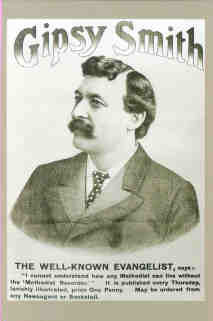A letter to the Church and the Synod: A Gypsy Response

February 2019. For many it was simply another month, albeit the hottest in UK history. However, for the UK’s (estimated) 300,000 Gypsies and Travellers, it represented an historical moment the likes of which had not been seen since the Victorian period. In a unanimous decision by the General Synod (the ruling council of the Church of England), an agreement of support towards Gypsies & Travellers was reached that has the potential to change the lives of many GRT (Gypsy, Roma & Traveller) people for the better in the UK and beyond.
Furthermore, the Church’s effective ‘outlawing’ of racism (in all its forms) amongst its own ranks towards GRT people, and its encouragement to provide land and dedicated Chaplains, is a workable model that could be replicated by the Government and local Councils up and down the nation. Whilst in the broad and national sense this can only be considered a good move, from a Gypsy perspective, this is the next major moment in what has been a relationship nearly 700 years in the making. As such, its connotations mean so much more…
To understand the Roma/Gypsy–Christian dynamic better, we have to go back to the mid 1300’s. The religious melting-pot town of Modon (now called, Methoni) on the coast of Greece served as the first major stopping point for the Roma diaspora. It was during our ancestors stay in Modon that Christianity was acquired. At a later date Eastern Europe would witness the formation of the first Muslim Gypsy communities. But for the most part, the Christian Church served as the communal ‘glue’ and moral compass for Gypsy collectives as they made their way onwards through Europe.
It cannot be overstated just how much of an impact and influence Christianity and the teachings (or ‘Dogma’) of the Church had upon early Gypsy and Traveller communal values and collective identity. This impact and influence has continued to the present day, visible not only in 80%+ of all GRT people (who identify as Christian), but also in the subtleties of day-to-day life and practices. We may not all be God-fearers, God-worshippers or regular Church attendees, but we are nevertheless a people built upon a foundation of Christianity.
That brings us to the present day. Our national Church has stood publicly and declared that to tolerate racism and discrimination towards GRT people is a ‘blasphemy against Christ’. Alongside this, the process of freeing up land to end the Gypsy and Traveller homelessness crisis has been initiated. And finally, newly appointed Chaplains in every diocese in the land to serve Gypsy and Traveller communities and peoples have been promised. As a people we welcome these motions with open arms and a thankful heart. But amongst our petitions of gratitude resides a degree of hesitancy to believe such changes will occur. We want to believe – we really do. But five or six centuries of being at the mercy of external social, political and religious hostilities tends to make one a bit sceptical.

So Church, is this affirmation of position an act of Christian mercy, love and solidarity? Or is it an act of Christian penance? I ask out of no degree of cynicism, but from a genuine Christian heart that speaks ever so briefly on behalf of an excluded and persecuted community. Recent reports reveal that some Priests are still refusing to conduct weddings, baptisms and funerals for Gypsies and Travellers, whilst some Churches have cut off their outside ‘graveyard tap’, rather than have Gypsies or Travellers have access to their water supply. In these circumstances, penance seems a reasonable option. But penance is not what we want to see.
Remember, Gypsies and Travellers are not recipients of the Church and its provision, but like all people, Gypsies and Travellers are part of the Church. Do I want to see acts of suffering in the name of mercy? No. Do I want to see the democratisation of ecclesiological – or Church-related processes? Yes. So please remember to involve us in your acts of love, consideration, and defence of our names and culture. Let’s walk together as we move forward into an age that truly sees GRT people as part of the fabric of our society and not an unwanted scrap. Let’s turn words into actions, and those promises of land into homes for our homeless. Oh, and about those Chaplaincy vacancies; I might know someone who needs a job…
By Mr Steven Horne, BA (Hons), AFHEA, UCAP.
Graduate Researcher (PhD) in Theology at Canterbury Christ Church University.